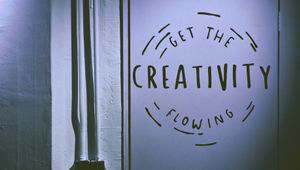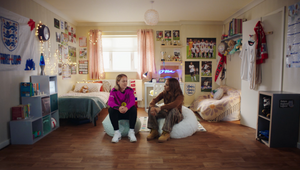
The Craft of Constructive Communication: Collaborative Conversations Between Creatives and Clients

Alice Trotter is an account manager at TBWA/London with experience working with a variety of FMCG and tech clients. She plays a key role in ensuring the smooth execution of creative campaigns that deliver results across various channels.
Alice is committed to producing high-quality work and always aims to exceed client expectations. Her focus on creativity and client satisfaction ensures that projects align with client goals, and campaigns not only meet expectations, but also create a lasting impact.
LBB> How did you first get involved in account management and what appealed to you about it?
Alice> I jumped onto the panic masters bandwagon in the wake of another lockdown in 2020, after finding an advertising course at London College of Communication that focused more on answering briefs than writing essays.
The hope was to set myself up to move into a more creative industry, but when it came to deciding which part of the advertising world I wanted to slot into, I was still a little unsure.
Account management felt like the best way to interact with all or most of the departments at an agency, and, therefore, the best way to start off. Ultimately, I liked being involved in the whole process, and this was largely why I stayed in account management.
LBB> What is it about your personality, skills and experience that has made account management such a great fit?
Alice> I was described as ‘pretty unflappable’ in one of my first reviews, and although I was initially sure this was a made-up word, I’ve found it’s popped up a few times since.
We’re in an industry where our teams and clients are often under immense pressure and, from my experience, you need to embrace challenges to be a truly solution-driven person, effective at alleviating tensions.
Equally, some simple reassurance, perspective, and even just a bit of a laugh goes a long way. How you hold yourself can really set the tone for a project, and the more comfortable people feel, the more likely you are to have productive and clear conversations.
LBB> What piece of advice would you give to someone just starting their career in account management?
Alice> It’s OK to not have all the answers. Being in uncharted territory usually means you’re gaining valuable new experience, and it shouldn’t be as daunting as it often feels. We can put a lot of pressure on ourselves to know everything, but that’s rarely the expectation, especially earlier in your career.
The best approach in situations where you might not have all the information is to have a point of view on how you might get that answer or resolve that problem. It’s reassuring to those around you – both clients and internal teams – but on a personal level, it encourages a more solution-driven attitude.
LBB> Thinking back to some of your most challenging experiences you’ve had in your career, what do you think tends to lie at the heart of the more tense or difficult client-agency relationships?
Alice> There tends to be increased tension when there’s more pressure around delivery, particularly if you’re working at speed to tighter timelines. It’s likely clients are under just as much pressure from external stakeholders as the agency might be, so transparency becomes particularly important. There’s little room for communication to slip, so managing expectations early on and making sure clients are clear on daily updates and actions becomes even more important.
LBB> And what are the keys to building a productive and healthy relationship?
Alice> Crucially, you need to prove yourself to be reliable over time to build trust, which is key to a healthy relationship. They need to know you’re all over the details so they can be confident that they’re also across all the key updates, deadlines and milestones. It really comes down to clear and consistent communication, making sure you’re always taking them on the journey with you.
Demonstrating a deep understanding of your clients’ needs will only further strengthen their trust in you and your team. Keeping notes on previous feedback and key brand updates and applying this to future project development will show them their opinions are valued and that you understand their ambitions.
If you can establish that you’re working together towards aligned goals, it will only encourage a better relationship.
LBB> What’s your view on disagreement and emotion – is there a place for it and if not, why not? If so, why – and what does productive disagreement look like?
Alice> Allowing ourselves to be emotional at times can encourage more vulnerable and honest discussion, providing a possible new lens through which to understand an alternative point of view. In this instance, emotion can absolutely have a place in disagreement.
Disagreement is necessary to help us develop an existing opinion or push us to a new (sometimes better) way of thinking. Emotion can have a productive place in this, but only if it can be expressed in a way that’s respectful and doesn’t dominate a discussion.
I read a super useful book, ‘The Five Dysfunctions of a Team’, that outlines five areas in which a team can be more or less productive. ‘Fear of conflict’ is a huge part of this. Defensiveness, impatience, or irritability are emotions that end up taking over a conversation, leaving little room for empathy and discouraging people from really listening or understanding your point. If there’s a fear of conflict in a team, your point won’t get heard and you’ll prevent more constructive discussions.
LBB> Historically, account management has been characterised as the mediator in an adversarial client and creative relationship – what do you make of that characterisation, is there any nugget of truth in that or is it wildly inaccurate?
Alice> There’s a lot of truth to it, but it’s more about mediating different priorities (creative vision versus ROI) than totally opposing points of view.
You can bring a slightly different perspective, as a representative of the agency with a deeper understanding of the client’s needs, that can help steer teams towards the best solution.
Often, the best way to mediate is by facilitating collaborative conversation between creatives and the client, so both feel heard and understood. The relationship between client and creative doesn’t necessarily need to be adversarial.
LBB> These days, agencies do so much beyond traditional campaigns and as account management you’re pulling together creative, experience, data, e-commerce, social and more – and that complexity can often be mirrored on the client stakeholder side too? What’s the key to navigating (and helping the client navigate) that complexity?
Alice> It comes back to the importance of transparency, setting realistic expectations, and having clear roles and responsibilities established from the start to help keep communication focused and prevent important details from being missed.
When updates become more complex, it helps to anticipate what the client might question and consider where they might need more context, while also keeping in mind what you might need from them at any given stage to help shape a clearer, more pointed response.
You want the client to feel like they’re across the detail as much as you are; a quick call can be the most helpful way of taking them on the journey with more complex projects, particularly if you can discuss alongside something that visualises the project as a whole (a status sheet can be your mutual best friend).
LBB> What recent projects are you proudest of and why? What was challenging about these projects from an account management perspective and how did you address those challenges? What was so satisfying about working on these projects?
Alice> We delivered a content series at the end of last year for the sexual health charity, Brook. The aim was to produce content that helped to combat sexual anxiety, often fuelled by misinformation, to normalise discussions instead around less-than-perfect sex.
The main barrier might not come as a shock, but it was pretty hard getting people to talk about sex. We were keen for the content series to be rooted in insights from as many people as possible, but had to rethink our approach to ensure people could retain some anonymity.
Ultimately, we were hugely proud of the final output that delivered some of the highest levels of engagement for Brook in the month it launched.















